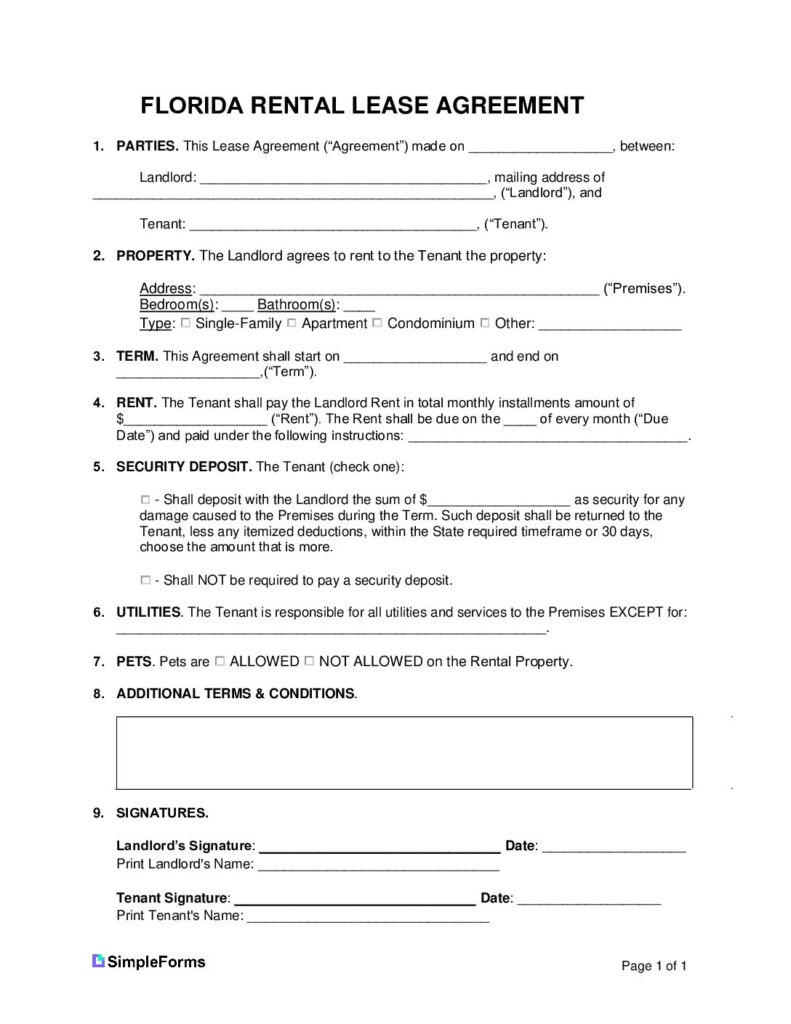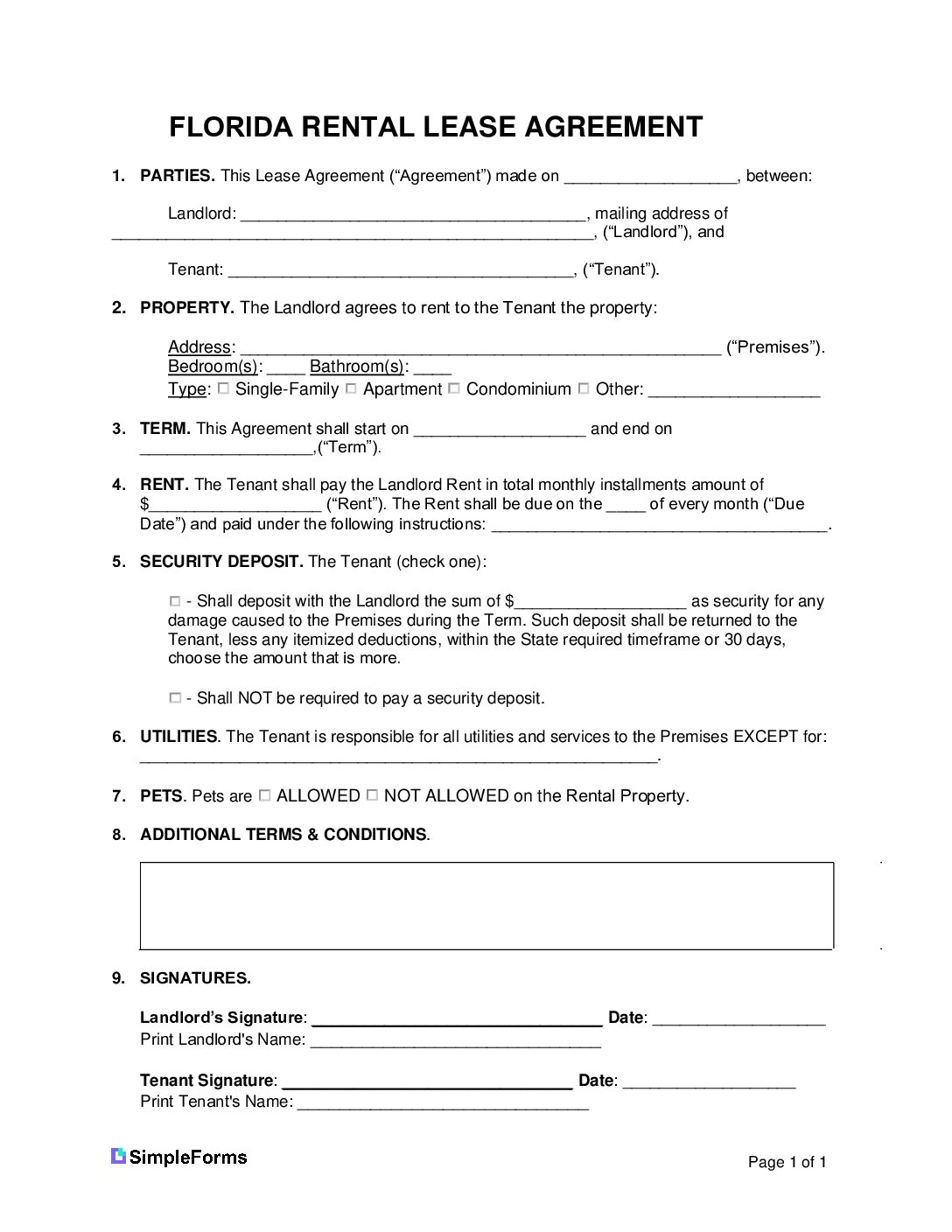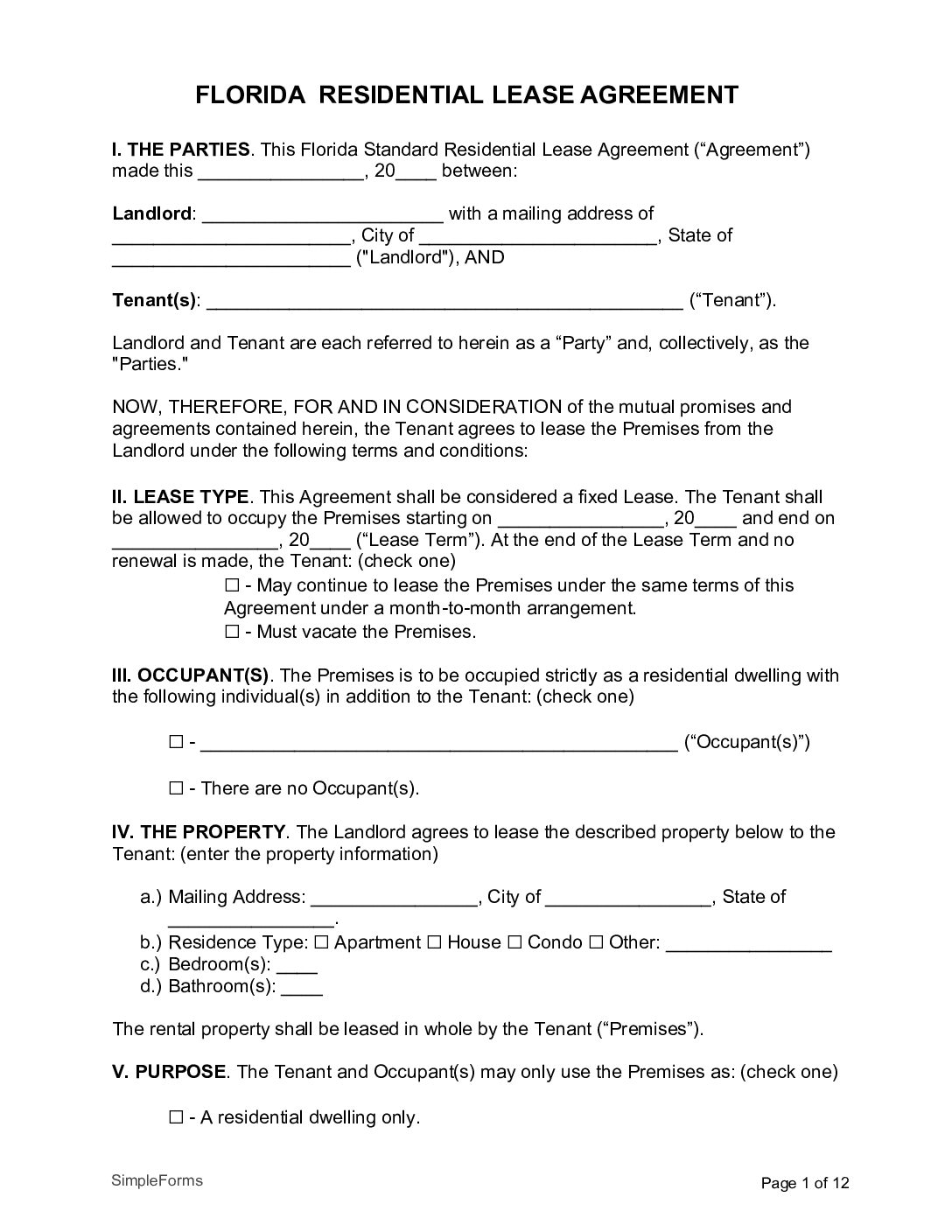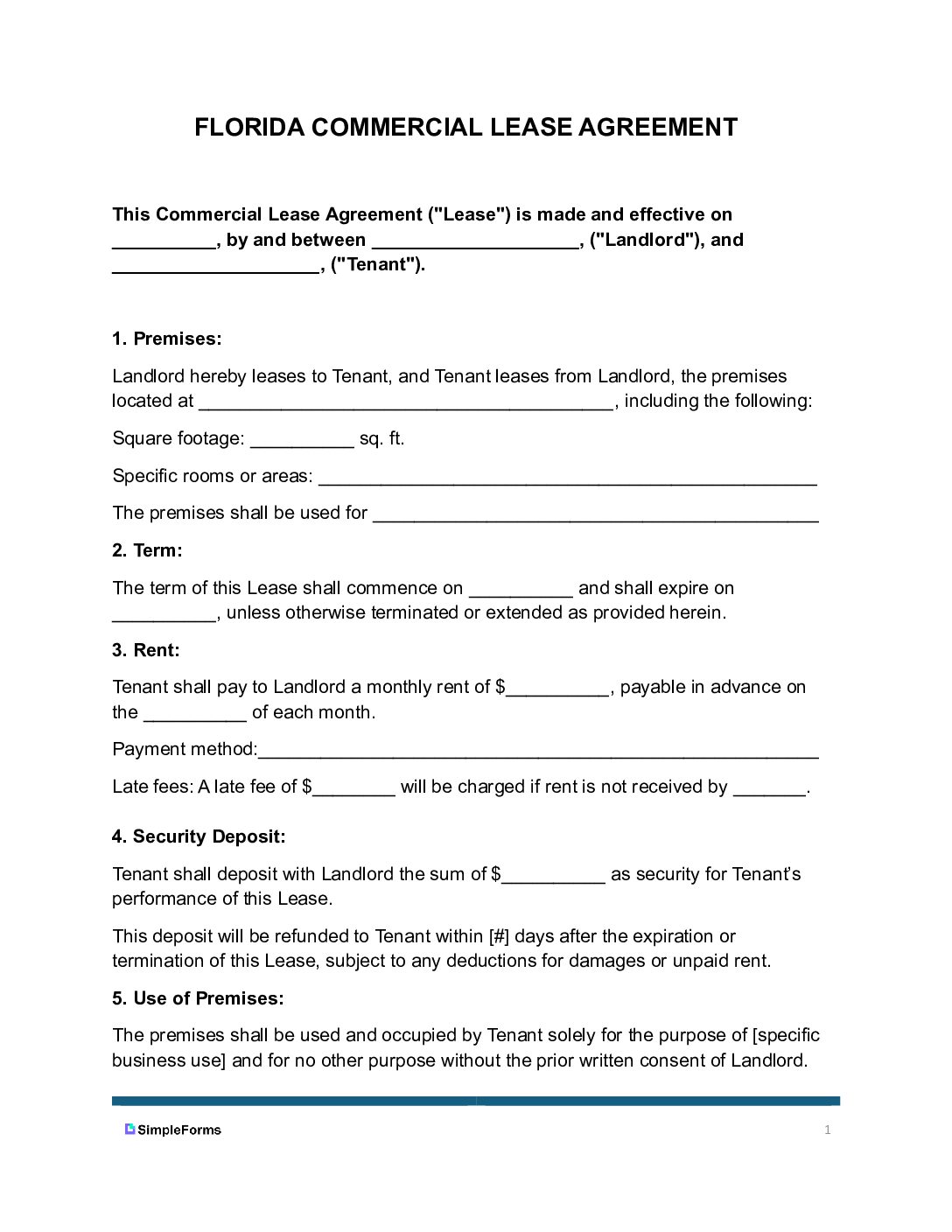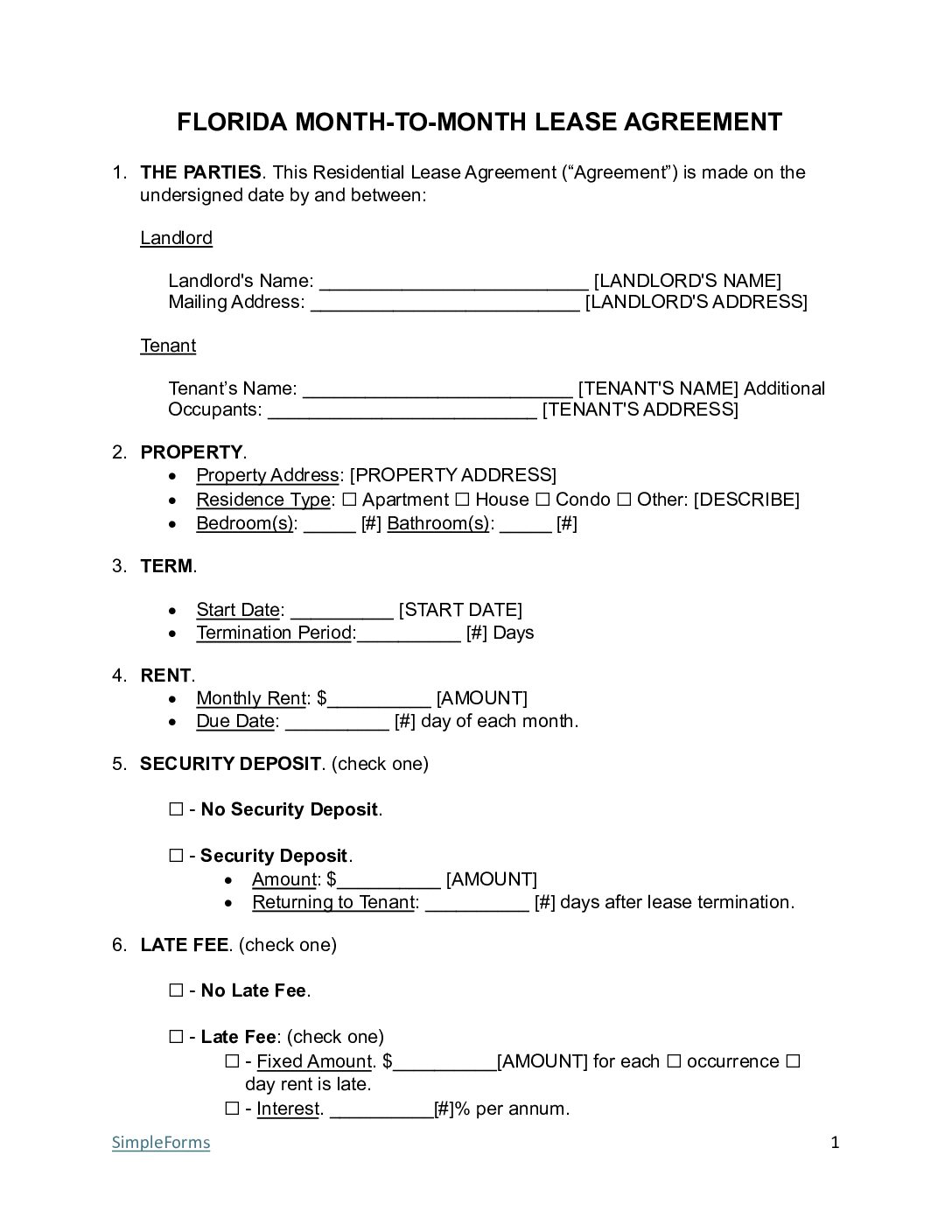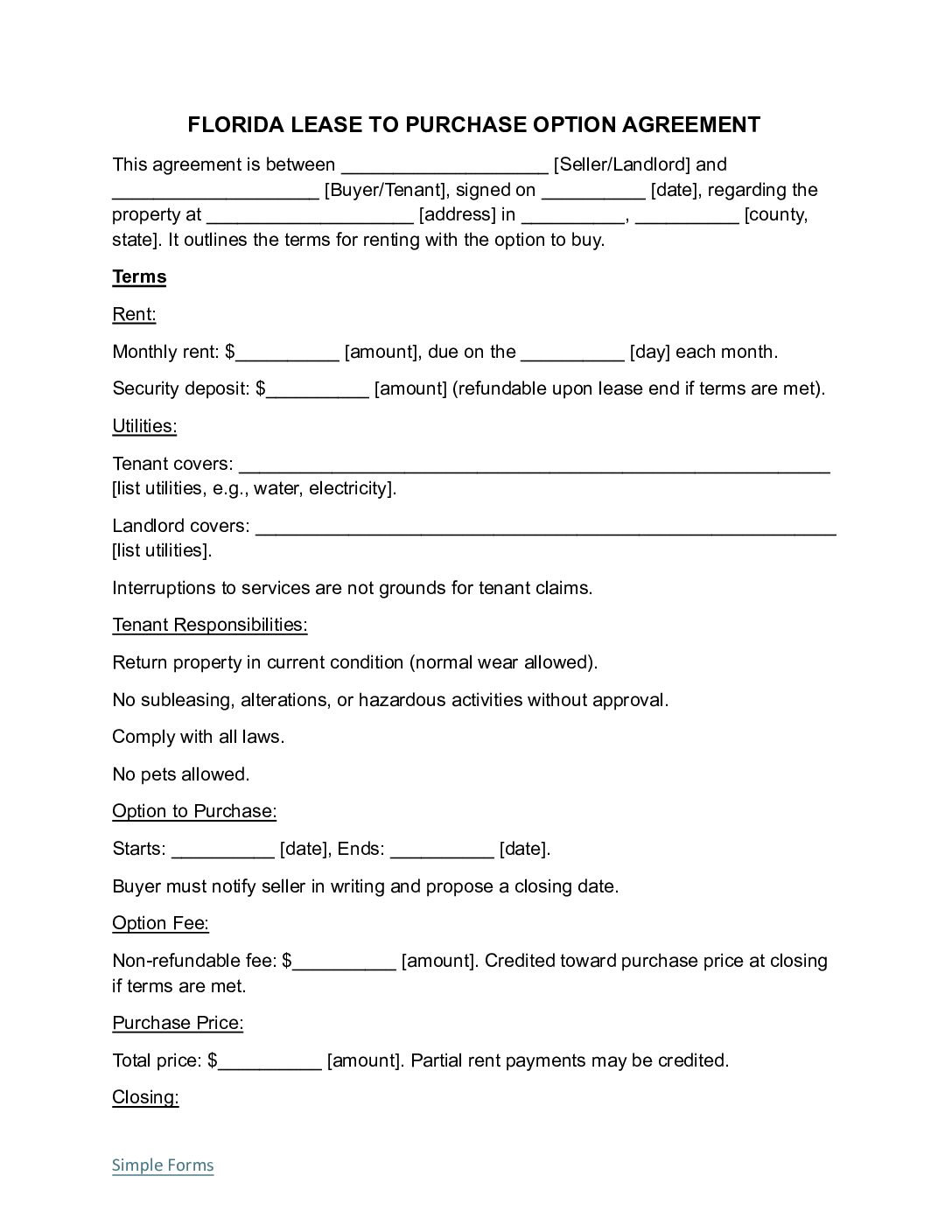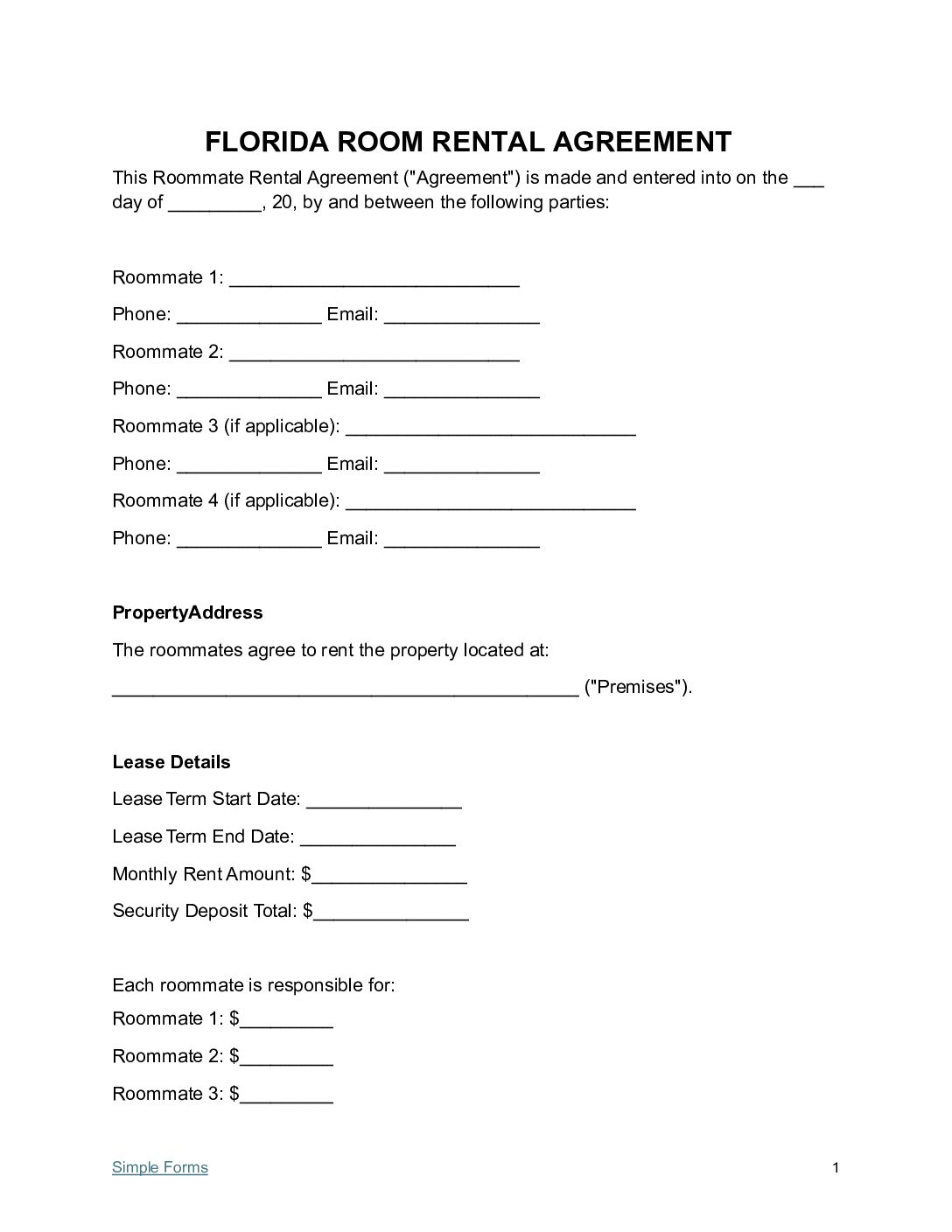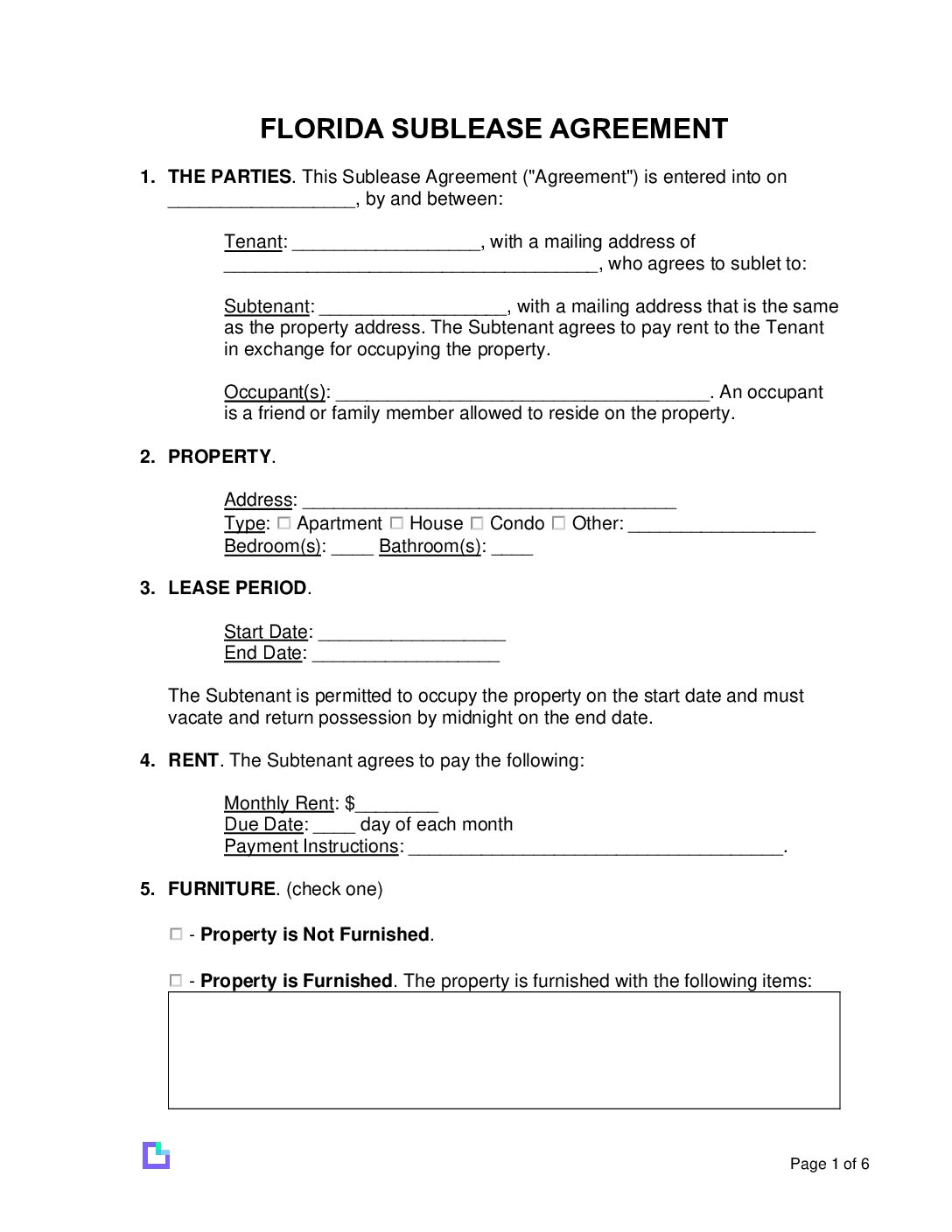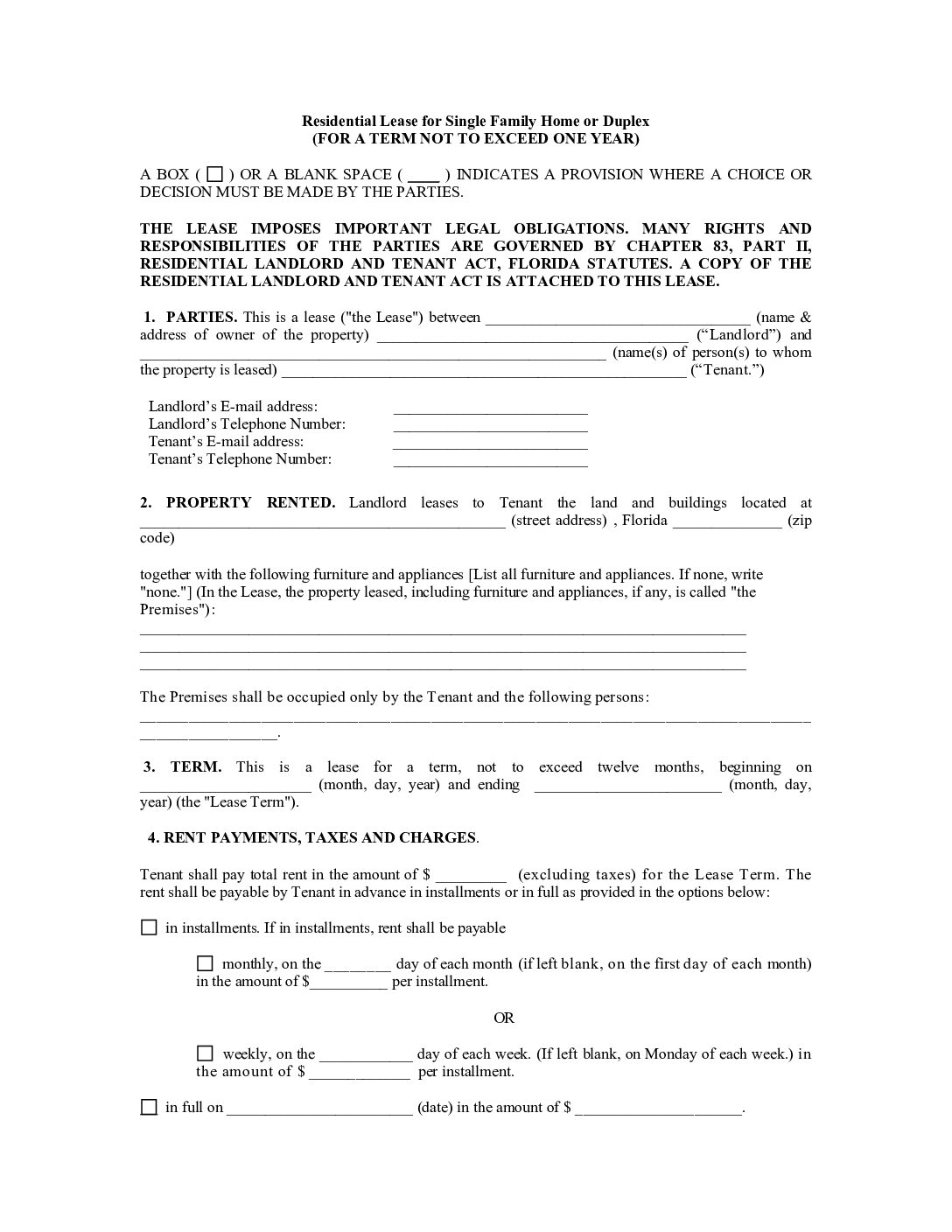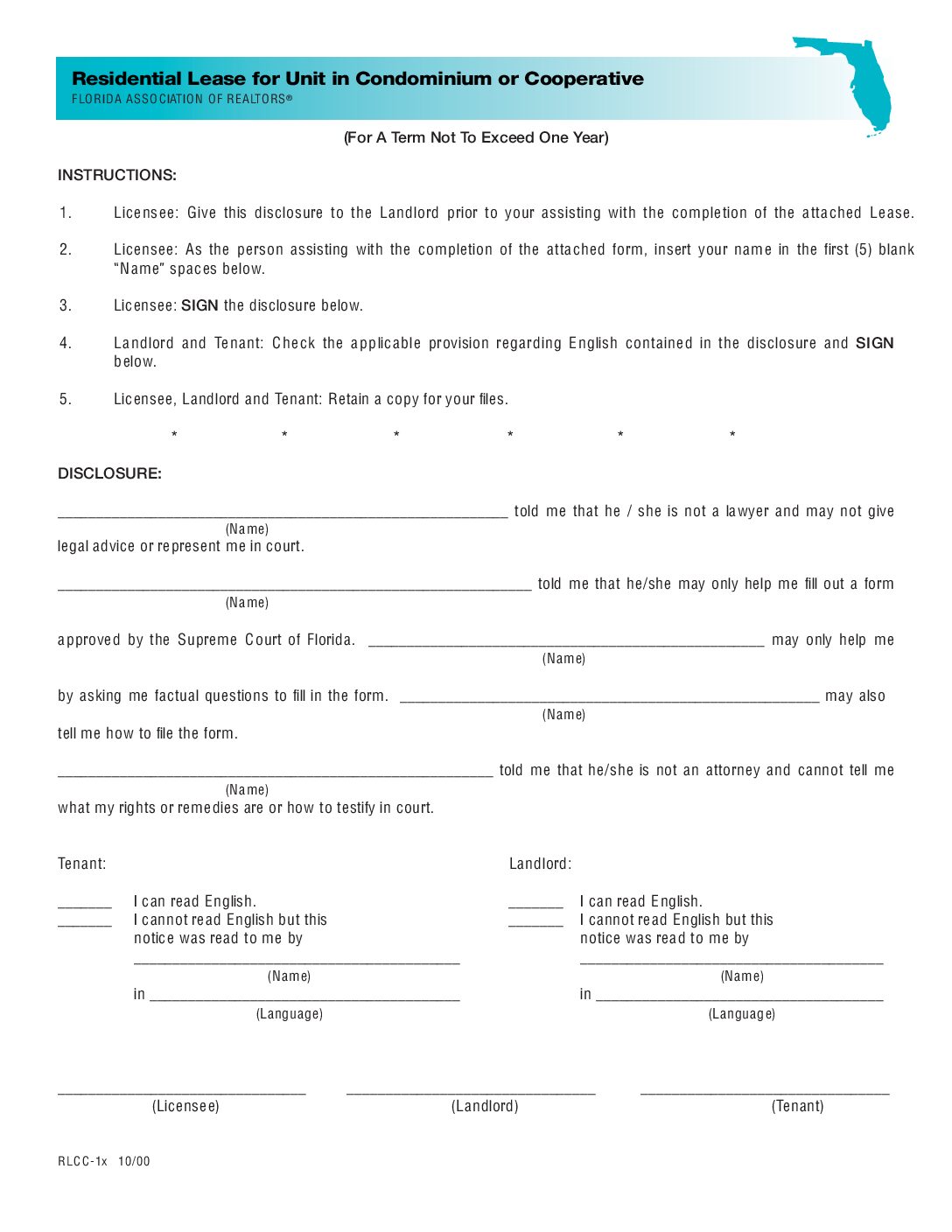A Florida Lease Agreement is a legal document that outlines the terms of renting a property between a landlord and tenant. The tenant must submit a rental application containing personal information and consent for a credit report check as part of the process
By Lease Type (9)

Florida Residential Lease
Download: PDF | Word (.docx)

Florida Commercial Lease
Download: PDF | Word (.docx)

Month-to-Month Lease
Download: PDF | Word (.docx)

Rent-to-Own Lease Option
Download: PDF | Word (.docx)

Florida Room Rental Agreement
Download: PDF | Word (.docx)

Florida Sublease Agreement
Download: PDF | Word (.docx)
Download: PDF | Word (.docx)
Florida Association of Realtors Lease
Download: PDF | Word (.docx)
Florida Condominium (Condo) Lease
Download: PDF | Word (.docx)
Most Recent US Home Facts
- Population (2023): 334,914,895
- Median Households (2022): 125,736,353
- Median Household Income (2022): $75,149
- Owner-occupied Households (2022): 64.8%
Source: U.S. Census Bureau
Disclosures (5)
- Identification – The lease agreement must contain the name and contact information of a designated point of contact for the Tenant. The address, phone number, and/or email should be provided.
- Lead-Based Paint Disclosure Form – Landlords are required to provide Tenants with a Lead-Based Paint Disclosure if the rental property was built before 1978.
- Radon Disclosure – Florida lease agreements must include a disclosure regarding radon.
- Security Deposit Disclosure – Incorporate the subsequent statement, utilizing CAPITAL LETTERS, into the lease agreement if a security deposit is deemed necessary.
- Security Deposit Receipt – Landlords are required to provide written notice to tenants within thirty (30) days of receiving a security deposit. The notice must include information about where the deposit is being held and whether it is an interest-bearing account.
Security Deposit
- Maximum – Landlords are allowed to request any amount of money from their tenants, as there is no maximum limit set on the amount that they may ask for.
- Return – 15-day return period if no deductions, 30 days if deductions.
Landlord Access
- General Access – The landlord must give at least 12 hours’ notice before entering the tenant’s property and may only enter between 7:30 a.m. and 8:00 p.m.
- Emergency – With the tenant’s consent, in case of an emergency, if the tenant is unreasonably withholding consent, or if the tenant is absent from the property for half of the time-frame for periodic payments.
Paying Rent
- Grace Period – In the state of Florida, the lease agreement stipulates that rent is due on the first day of each month. It is imperative to note that there is no grace period for rental payments.
- Notice to Quit – Consequently, should a tenant fail to remit their rent payment by the due date, the landlord is within their legal rights to issue a 3-day notice to quit, thus initiating the eviction process.
Source: § 83.46(1)
Late Fees
Landlords are permitted to levy a late fee that is deemed reasonable and fair, provided that it is stated in the lease agreement.
Source: § 83.45
